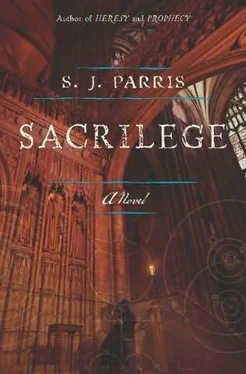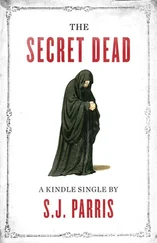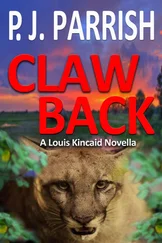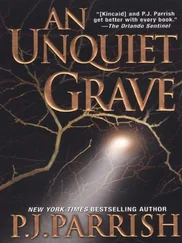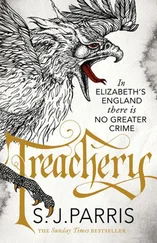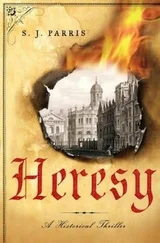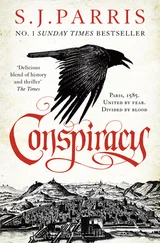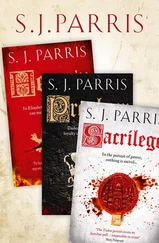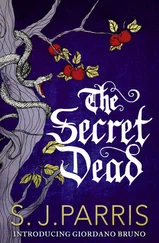“Carey Edmonton, constable of this parish. An accident, the girl said?”
“I didn’t want to alarm her. This was no accident—the apothecary has been murdered in his distillery.”
The constable simply stared, as if he had not understood.
“Murder? How do you know?”
“Take a look.”
He continued to regard me a moment longer, as if he was not certain whether to believe me, before asserting himself by brushing past and in through the open doorway, where he stopped abruptly as if slapped, gagging on the smell.
“What in God’s name has happened here?” he whispered, almost to himself, his words muffled by the sleeve he pressed to his mouth. He took a step back and turned to me again, as if expecting me to make sense of the sight before him.
“He was beaten to death, but it seems he put up a brave fight before he was felled. The street door was locked from the inside, but this back door was open, though the gate from the yard to the alleyway was padlocked from the inside.”
Edmonton took his hand slowly from his mouth and stepped back into the yard, frowning as if noticing me properly for the first time.
“How did you get in, then? And who the Devil are you to be poking around?”
“My name is Filippo Savolino. I came as a customer—yesterday Master Fitch had promised me a remedy. I found the girl outside, anxious because she could get no reply, so I offered to see what was wrong. When I couldn’t open the gate, I climbed the wall.”
He pulled at his beard again.
“I see. I have seen you before, have I not? Loitering about the Buttermarket, as I recall.”
“I was not loitering—I was on my way to visit my friend the Reverend Doctor Harry Robinson at the cathedral,” I said, stung by his tone. “You will see a great disturbance in the shop,” I continued, trying to sound more placatory as I led him through to the front room. “It seems to me that whoever killed the apothecary was looking for something on his shelves.”
“A robbery, then,” the constable said, as if the business required no further consideration. He glanced at the mess on the floor, set his jaw, and nodded to himself. “Since the plague fears in London, we have more than our share of vagabonds and beggars littering the streets. Probably one of them, looking for gold or whatever he could sell. I’ll have them rounded up—we’ll soon find the villain that did this.” He shot a brief glance back at the workshop and sniffed. “He was a good man, William Fitch, well liked by the townspeople. There’ll be a great deal of anger against the incomers for this.”
“And yet it seems that Master Fitch readily admitted his attacker himself without suspicion, since the shop was locked from the inside, and there is no sign of force,” I said. “And see, here—it is mainly books and papers pulled from the shelves, as if the person was looking for something quite specific. I am not persuaded that this was an ordinary robbery.” I hesitated for a moment, wondering if I should mention the appearance of Sykes the previous evening, but decided against it; the physician was clearly a prominent citizen of Canterbury and any suggestion that he might be implicated would only draw unwelcome attention to myself.
The constable folded his arms across his chest and his moustache twitched as his lip curled into a sneer.
“Oh, you are not persuaded ? And who are you to offer opinions either way? Are you a parish constable? I think not. You are not even a parishioner.”
I held up my hands as if to mitigate any offence.
“I beg your pardon, Constable. I was only thinking aloud.”
He grunted.
“I shall want testimony from you and the girl. Where will I find you?”
“At the Cheker of Hope.”
“Good. Do not leave the city, Master …”
“Savolino. I won’t.”
He nodded curtly and gestured towards the back gate.
“Now leave me to my job, if you please.”
I bowed slightly and crossed to the door, with a last glance back at the workshop of the unfortunate apothecary. A more thorough search of the place would yield better evidence of the killer, I was sure, but I pulled the front door closed behind me, telling myself that it was no longer my business. I had enough to do to find one murderer, let alone another that had nothing to do with me, and it was only the merest chance that I had discovered the death of Fitch. And yet, as I emerged into the light of the High Street to see a little gaggle of interested observers gathered around the shopfront, I had to acknowledge that hiding that fragment of paper, with its mysterious reference to Paracelsus, was as good as admitting I could not let the matter go. The constable would find some hapless vagrant to blame in order to satisfy the townspeople, who would cheer for his hanging, and all would be forgotten, while the murderer congratulated himself. This was what passed for justice, more often a question of avoiding public unrest than of discovering the truth. This is not your problem, I told myself again, but the apothecary’s murder troubled me, perhaps because the manner of it was so similar to the killing of Sir Edward Kingsley.
I noticed the girl Rebecca at the heart of the crowd, wailing loudly and being comforted by the two stout women who had been watching earlier. No one paid me any attention, so I took the opportunity to slip away towards the weavers’ houses.
A man in his fifties answered the door of the Fleury house. He had greying hair, a full moustache and wore a beaten expression, as if hardship and exhaustion had robbed him of any vital spirit. He looked me up and down, as if I were one more burden Fate had seen fit to lay on his shoulders.
“Monsieur Fleury?”
“I know who you are. Come inside.” He glanced along the lane to either side, but there was no sign of movement. “Is that blood on your stocking?” he asked as he closed the door behind me. The flatness of his tone suggested he was not especially interested either way. I glanced down; there was a streak of dark red on my ankle where I must have brushed against Fitch’s body.
“I was—at the scene of an accident,” I said.
Fleury shook his head.
“I have seen enough blood spilled.” He took me by the sleeve and pulled me close, dropping his voice. “You must take her away. Do you understand? My son …” He faltered and shook his head again. “I got my family out of Paris alive while our friends and neighbours were butchered in their homes. I thought we would be safe in a Protestant country. But already we have lost one child. I will not see my son hanged as well. The girl should not be in my house. We tried to help her, but once is enough. She is dangerous.”
“She is unlucky.”
He set his jaw. “I say she is dangerous, monsieur. You know it and I know it. Only my son cannot see this, because he is young and she is beautiful. Perhaps you close your eyes to it as well, but I am old enough not to have this blindness.” He gave a great sigh that seemed to reverberate through his bones.
He opened a door on the left of the small hallway and motioned me into a long room overlooking the river and dominated by the wooden frames of three large looms, where women sat working the treadle, the mechanism clicking rhythmically as they fed the shuttle back and forth. They gave us only the briefest glance as we passed through, their eyes fixed to the coloured yarns stretched on the frames before them. Bobbin racks and contraptions for stretching thread lined the walls. I looked out of the window at the narrow creek; a man was loading bales of cloth from a small jetty at the back of the house on to a low boat. At the far end of this workshop a narrow staircase ascended to the floor above. I glanced down at the scene of industry in the workshop below as we climbed.
Читать дальше
Конец ознакомительного отрывка
Купить книгу
